Śrīmad-Bhāgvatam – Canto 8
(Q&A Format)
At every step there is danger in this material world.
This material world is described as padam padam yad vipadam, which means that at every step there is danger. A fool wrongly thinks that he is happy in this material world, but in fact he is not, for one who thinks that way is only illusioned. At every step, at every moment, there is danger. In modern civilization one thinks that if he has a nice home and a nice car his life is perfect. If we actually think that this material world is a very happy place, this is our ignorance. Real knowledge is that this material world is full of danger. We may struggle for existence as far as our intelligence allows and may try to take care of ourselves, but unless the Supreme Personality of Godhead, Krishna, ultimately saves us from danger, our attempts will be useless. Therefore Prahlada Maharaja says:
balasya neha saranam pitarau nrsimha nartasya cagadam udanvati majjato nauh
taptasya tat-pratividhir ya ihanjasestas tavad vibho tanu-bhrtam tvad-upeksitanam
(Bhag. 7.9.19)
We may invent so many ways to be happy or to counteract the dangers of this material world, but unless our attempts are sanctioned by the Supreme Personality of Godhead, they will never make us happy. Those who try to be happy without taking shelter of the Supreme Personality of Godhead are mudhas, rascals. Na mam duskrtino mudhah prapadyante naradhamah. Those who are the lowest of men refuse to take to Krishna consciousness because they think that they will be able to protect themselves without Krishna’s care. This is their mistake.
Source: A.C. Bhaktivedanta Swami Prabhupada (2014 edition), “Srimad Bhagavatam”, Eighth Canto, Chapter 2 – Text 32
Churning of ocean initially produced huge amount of poison.
With the understanding that when the nectar was generated from the churning they would share it equally, the demigods and the demons brought Vasuki to be used as the rope for the churning rod. By the expert arrangement of the Supreme Personality of Godhead, the demons held the snake near the mouth, whereas the demigods held the tail of the great snake. Then, with great endeavor, they began pulling the snake in both directions. Because the churning rod, Mandara Mountain, was very heavy and was not held by any support in the water, it sank into the ocean, and in this way the prowess of both the demons and the demigods was vanquished. The Supreme Personality of Godhead then appeared in the form of a tortoise and supported Mandara Mountain on His back. Then the churning resumed with great force. As a result of the churning, a huge amount of poison was produced. The prajapatis, seeing no one else to save them, approached Lord Shiva and offered him prayers full of truth. Lord Shiva is called Asutosa because he is very pleased if one is a devotee. Therefore he easily agreed to drink all the poison generated by the churning. The goddess Durga, Bhavani, the wife of Lord Shiva, was not at all disturbed when Lord Shiva agreed to drink the poison, for she knew Lord Shiva’s prowess. Indeed, she expressed her pleasure at this agreement. Then Lord Shiva gathered the devastating poison, which was everywhere. He took it in his hand and drank it. After he drank the poison, his neck became bluish. A small quantity of the poison dropped from his hands to the ground, and it is because of this poison that there are poisonous snakes, scorpions, toxic plants and other poisonous things in this world.
Source: A.C. Bhaktivedanta Swami Prabhupada (2014 edition), “Srimad Bhagavatam”, Eighth Canto, Chapter 7 – Introduction
Everyone fears death.
In Bhagavad-gita the Lord clearly says, mrtyuh sarva-haras caham: “I am all-devouring death.” Thus mrtyu, or death, is the representative who takes everything away from the living entity who has accepted a material body. No one can say, “I do not fear death.” This is a false proposition. Everyone fears death. However, one who seeks shelter of the Supreme Personality of Godhead can be saved from death. One may argue, “Does the devotee not die?” The answer is that a devotee certainly must give up his body, for the body is material. The difference is, however, that for one who surrenders to Krishna fully and who is protected by Krishna, the present body is his last; he will not again receive a material body to be subjected to death. This is assured in Bhagavad-gita (4.9). Tyaktva deham punar janma naiti mam eti so’rjuna: a devotee, after giving up his body, does not accept a material body, but returns home, back to Godhead. We are always in danger because at any moment death can take place. It is not that only Gajendra, the King of the elephants, was afraid of death. Everyone should fear death because everyone is caught by the crocodile of eternal time and may die at any moment. The best course, therefore, is to seek shelter of Krishna, the Supreme Personality of Godhead, and be saved from the struggle for existence in this material world, in which one repeatedly takes birth and dies. To reach this understanding is the ultimate goal of life.
Source: A.C. Bhaktivedanta Swami Prabhupada (2014 edition), “Srimad Bhagavatam”, Eighth Canto, Chapter 2 – Text 33
Sometimes, when there is no alternative, a pure devotee prays for some benediction.
anyabhilasita-sunyam jnana-karmady-anavrtam
anukulyena Krishnanusilanam bhaktir uttama
(Bhakti-rasamrta-sindhu 1.1.11)
“One should render transcendental loving service to the Supreme Lord Krishna favorably and without desire for material profit or gain through fruitive activities or philosophical speculation. That is called pure devotional service.” Unalloyed devotees have nothing to ask from the Supreme Personality of Godhead. Sometimes, when there is no alternative, a pure devotee, being fully dependent on the mercy of the Supreme Lord, prays for some benediction. But in such a prayer there is also regret. One who always hears and chants about the transcendental pastimes of the Lord is always situated on a platform on which he has nothing to ask in terms of material benefits.
Source: A.C. Bhaktivedanta Swami Prabhupada (2014 edition), “Srimad Bhagavatam”, Eighth Canto, Chapter 3 – Text 20 & 21
A devotee regards danger as a good opportunity.
A devotee does not consider a dangerous position to be dangerous, for in such a dangerous position he can fervently pray to the Lord in great ecstasy. Thus a devotee regards danger as a good opportunity. Tat te’nukampam susamiksamanah. When a devotee is in great danger, he sees that danger to be the great mercy of the Lord because it is an opportunity to think of the Lord very sincerely and with undiverted attention. Tat te ‘nukampam susamiksamano bhunjana evatma-krtam vipakam (Bhag. 10.14.8). He does not accuse the Supreme Personality of Godhead for having let His devotee fall into such a dangerous condition. Rather, he considers that dangerous condition to be due to his past misdeeds and takes it as an opportunity to pray to the Lord and offer thanks for having been given such an opportunity. When a devotee lives in this way, his salvation–his going back home, back to Godhead–is guaranteed.
Source: A.C. Bhaktivedanta Swami Prabhupada (2014 edition), “Srimad Bhagavatam”, Eighth Canto, Chapter 3 – Text 32
After initiation, a disciple should be extremely careful not to commit any sinful act.
Sometimes the spiritual master, after accepting a disciple, must take charge of that disciple’s past sinful activities and, being overloaded, must sometimes suffer–if not fully, then partially– for the sinful acts of the disciple. To counteract the sinful reactions he accepts from the disciple, he has to see a bad dream. Nonetheless, the spiritual master is so kind that in spite of having bad dreams due to the sinful disciple, he accepts this troublesome business for the deliverance of the victims of Kali-yuga. After initiation, therefore, a disciple should be extremely careful not to commit again any sinful act that might cause difficulties for himself and the spiritual master. Before the Deity, before the fire, before the spiritual master and before the Vaisnavas, the honest disciple promises to refrain from all sinful activity. Therefore he must not again commit sinful acts and thus create a troublesome situation. The poor spiritual master is kind and merciful enough to accept a disciple and partially suffer for that disciple’s sinful activities, but Krishna, being merciful to His servant, neutralizes the reactions of sinful deeds for the servant who engages in preaching His glories.
Source: A.C. Bhaktivedanta Swami Prabhupada (2014 edition), “Srimad Bhagavatam”, Eighth Canto, Chapter 4 – Text 15
A.C. Bhaktivedanta Swami Prabhupada (2014 edition), “Srimad Bhagavatam”, Ninth Canto, Chapter 9 – Text 5
How long the Hare Krishna sankirtan movement will continue?
Kali-yuga is full of contamination. This is described in the Srimad-Bhagavatam (12.3.51):
kaler dosa-nidhe rajann asti hy eko mahan gunah
kirtanad eva Krishnasya mukta-sangah param vrajet
This age of Kali is full of unlimited faults. Indeed, it is just like an ocean of faults (dosa-nidhi). But there is one chance, one opportunity. Kirtanad eva Krishnasya mukta-sangah param vrajet: simply by chanting the Hare Krishna mantra, one can be freed from the contamination of Kali-yuga and, in his original spiritual body, can return home, back to Godhead. This is the opportunity of Kali-yuga.
When Krishna appeared, He gave His orders, and when Krishna Himself appeared as a devotee, as Sri
Caitanya Mahaprabhu, He showed us the path by which to cross the ocean of Kali-yuga. That is the path of the Hare Krishna movement. When Sri Caitanya Mahaprabhu appeared, He ushered in the era for the sankirtana movement. It is also said that for ten thousand years this era will continue. This means that simply by accepting the sankirtana movement and chanting the Hare Krishna maha-mantra, the fallen souls of this Kali-yuga will be delivered. After the Battle of Kuruksetra, at which Bhagavad-gita was spoken, Kali-yuga continues for 432,000 years, of which only 5,000 years have passed. Thus there is still a balance of 427,000 years to come. Of these 427,000 years, the 10,000 years of the sankirtana movement inaugurated by Sri Caitanya Mahaprabhu 500 years ago provide the opportunity for the fallen souls of Kali-yuga to take to the Krishna consciousness movement, chant the Hare Krishna maha-mantra and thus be delivered from the clutches of material existence and return home, back to Godhead.
Chanting of the Hare Krishna maha-mantra is potent always, but it is especially potent in this age of Kali. Therefore Sukadeva Gosvami, while instructing Maharaja Pariksit, stressed this chanting of the Hare Krishna mantra.
kaler dosa-nidhe rajann asti hy eko mahan gunah
kirtanad eva Krishnasya mukta-sangah param vrajet
“My dear King, although Kali-yuga is full of faults, there is still one good quality about this age. It is that simply by chanting the Hare Krishna maha-mantra, one can become free from material bondage and be promoted to the transcendental kingdom.” (Bhag. 12.3.51) Those who have accepted the task of spreading the Hare Krishna maha-mantra in full Krishna consciousness should take this opportunity to deliver people very easily from the clutches of material existence. Our duty, therefore, is to follow the instructions of Sri Caitanya Mahaprabhu and preach the Krishna consciousness movement all over the world very sincerely. This is the best welfare activity for the peace and prosperity of human society.
Source: A.C. Bhaktivedanta Swami Prabhupada (2014 edition), “Srimad Bhagavatam”, Eighth Canto, Chapter 5 – Text 23
It is not necessary for one to see God before he can accept God.
It is said that when Brahma and the other demigods go to see the Supreme Personality of Godhead in Svetadvipa, they cannot directly see Him, but their prayers are heard by the Lord, and the needful action is taken. This we have seen in many instances. The word sruta-purvaya is significant. We get experience by directly seeing or by hearing. If it is not possible to see someone directly, we can hear about him from authentic sources. Sometimes people ask whether we can show them God. This is ludicrous. It is not necessary for one to see God before he can accept God. Our sensory perception is always incomplete. Therefore, even if we see God, we may not be able to understand Him. When Krsna was on earth, many, many people saw Him but could not understand that He is the Supreme Personality of Godhead. Avajananti mam mudha manusim tanum asritam. Even though the rascals and fools saw Krsna personally, they could not understand that He is the Supreme Personality of Godhead. Even upon seeing God personally, one who is unfortunate cannot understand Him. Therefore we have to hear about God, Krsna, from the authentic Vedic literature and from persons who understand the Vedic version properly. Even though Brahma had not seen the Supreme Personality of Godhead before, he was confident that the Lord was there in Svetadvipa. Thus he took the opportunity to go there and offer prayers to the Lord. Seeing the Lord is not as important as appreciating Him from the authentic literature or the authentic statements of authorized persons.
Source: A.C. Bhaktivedanta Swami Prabhupada (2014 edition), “Srimad Bhagavatam”, Eighth Canto, Chapter 5 – Text 25
Songs that has not been approved or sung by bonafide devotees are not allowed.
In Krishna consciousness movement any song that has not been approved or sung by bona fide devotees is not allowed. Any cinema songs are not allowed to be sung in the temple. The devotees generally sing two songs. One is jai sri-Krishna-caitanya prabhu nityananda sriadvaita gadadhara srivasadi-gaura-bhakta-vrnda. This is bona fide. It is always mentioned in the Caitanya caritamrta, and it is accepted by the acaryas. The other, of course, is the maha-mantra–Hare Krishna, Hare
Krishna, Krishna Krishna, Hare Hare. Hare Rama, Hare Rama, Rama Rama, Hare Hare. Songs of Narottama dasa Thakura, Bhaktivinoda Thakura and Locana dasa Thakura are also allowed, but these two songs–“sri-Krishna-caitanya” and the Hare Krishna maha-mantra–are sufficient to please the Supreme Personality of Godhead.
Source: A.C. Bhaktivedanta Swami Prabhupada (2014 edition), “Srimad Bhagavatam”, Eighth Canto, Chapter 5 – Text 25
Water is the source of life for everyone.
Despite the theories of so-called scientists, the vast quantities of water on this planet and on other planets are not created by a mixture of hydrogen and oxygen. Rather, the water is sometimes explained to be the perspiration and sometimes the semen of the Supreme Personality of Godhead. It is from water that all living entities emerge, and because of water they live and grow. If there were no water, all life would cease. Water is the source of life for everyone. Therefore, by the grace of the Supreme Personality of Godhead, we have so much water all over the world.
Source: A.C. Bhaktivedanta Swami Prabhupada (2014 edition), “Srimad Bhagavatam”, Eighth Canto, Chapter 5 – Text 33
Moon is the source of food grains.
Soma, the predominating deity of the moon, is the source of food grains and therefore the source of strength even for the celestial beings, the demigods. He is the vital force for all vegetation. Unfortunately, modern so-called scientists, who do not fully understand the moon, describe the moon as being full of deserts. Since the moon is the source for our vegetation, how can the moon be a desert? The moonshine is the vital force for all vegetation, and therefore we cannot possibly accept that the moon is a desert. As stated by learned scholars, the moon is the mind of the Supreme Personality of Godhead. May that Supreme Personality of Godhead, the source of all opulences, be pleased with us.
Source: A.C. Bhaktivedanta Swami Prabhupada (2014 edition), “Srimad Bhagavatam”, Eighth Canto, Chapter 5 – Text 34
The Sun is like the eye of the Supreme Lord.
The sun-god is considered to be the chief of the demigods. He is also considered to be the demigod who watches the northern side of the universe. He gives help for understanding the Vedas. As confirmed in Brahma-samhita (5.52):
yac-caksur esa savita sakala-grahanam raja samasta-sura-murtir asesa-tejah
yasyajnaya bhramati sambhrta-kala-cakro govindam adi-purusam tam aham bhajami
“The sun, full of infinite effulgence, is the king of all the planets and the image of the good soul. The sun is like the eye of the Supreme Lord. I adore the primeval Lord Govinda, in pursuance of whose order the sun performs his journey, mounting the wheel of time.” The sun is actually the eye of the Lord. In the Vedic mantras it is said that unless the Supreme Personality of Godhead sees, no one can see. Unless there is sunlight, no living entity on any planet can see. Therefore the sun is considered to be the eye of the Supreme Lord. That is confirmed here by the words yac-caksur asit and in the Brahma-samhita by the words yac-caksur esa savita. The word savita means the sun-god.
Source: A.C. Bhaktivedanta Swami Prabhupada (2014 edition), “Srimad Bhagavatam”, Eighth Canto, Chapter 5 – Text 36
Of all types of worship, worship of Lord Vishnu is best.
As stated in the Padma Purana:
aradhananam sarvesam visnor aradhanam param
tasmat parataram devi tadiyanam samarcanam
“Of all types of worship, worship of Lord Visnu is best, and better than the worship of Lord Visnu is the worship of His devotee, the Vaisnava.” There are many demigods worshiped by people who are attached to material desires (kamais tais tair hrta jnanah prapadyante’nya-devatah). Because people are embarrassed by so many material desires, they worship Lord Siva, Lord Brahma, the goddess Kali, Durga, Ganesa and Surya to achieve different results. However, one can achieve all these results simultaneously just by worshiping Lord Visnu. As stated elsewhere in the Bhagavatam (4.31.14):
yatha taror mula-nisecanena trpyanti tat-skandha-bhujopasakhah
pranopaharac ca yathendriyanam tathaiva sarvarhanam acyutejya
“Just by pouring water on the root of a tree, one nourishes its trunk and all of its branches, fruits and flowers, and just by supplying food to the stomach, one satisfies all the limbs of the body. Similarly, by worshiping Lord Visnu one can satisfy everyone.” Krsna consciousness is not a sectarian religious movement. Rather, it is meant for all-embracing welfare activities for the world. One can enter this movement without discrimination in terms of caste, creed, religion or nationality. If one is trained to worship the Supreme Personality of Godhead, Krsna, who is the origin of visnu-tattva, one can become fully satisfied and perfect in all respects.
Source: A.C. Bhaktivedanta Swami Prabhupada (2014 edition), “Srimad Bhagavatam”, Eighth Canto, Chapter 5 – Text 49
God conscious person is always happy and victorious.
Politics, diplomacy, the propensity to cheat, and everything that we find in this world in individual and social negotiations between two parties are also present in the upper planetary systems. The demigods went to Bali Maharaja with the proposal to manufacture nectar, and the Daityas, the demons, immediately accepted it, thinking that since the demigods were already weak, when the nectar was produced the demons would take it from them and use it for their own purposes. The demigods, of course, had similar intentions. The only difference is that the Supreme Personality of Godhead, Lord Vishnu, was on the side of the demigods because the demigods were His devotees, whereas the demons did not care about Lord Vishnu. All over the universe there are two parties–the Vishnu party, or God-conscious party, and the godless party. The godless party is never happy or victorious, but the God conscious party is always happy and victorious.
Source: A.C. Bhaktivedanta Swami Prabhupada (2014 edition), “Srimad Bhagavatam”, Eighth Canto, Chapter 6 – Text 31
The difference between the demigods and the demons.
There are two classes of living entities–the demons and the demigods–and the Supreme Personality of Godhead is above them both. The demons believe in the “chance” theory of creation, whereas the demigods believe in creation by the hand of the Supreme Personality of Godhead. The omnipotence of the Supreme Lord is proved here, for simply with one hand He lifted Mandara Mountain, the demigods and the demons, placed them on the back of Garuda and brought them to the ocean of milk. Now, the demigods, the devotees, would immediately accept this incident, knowing that the Lord can lift anything, however heavy it might be. But although demons were also carried along with the demigods, demons, upon hearing of this incident, would say that it is mythological. But if God is all-powerful, why would it be difficult for Him to lift a mountain? Since He is floating innumerable planets with many hundreds and thousands of Mandara Mountains, why can’t He lift one of them with His hand? This is not mythology, but the difference between the believers and the faithless is that the devotees accept the incidents mentioned in the Vedic literatures to be true, whereas the demons simply argue and label all these historical incidents mythology. Demons would prefer to explain that everything happening in the cosmic manifestation takes place by chance, but demigods, or devotees, never consider anything to be chance. Rather, they know that everything is an arrangement of the Supreme Personality of Godhead. That is the difference between the demigods and the demons.
Source: A.C. Bhaktivedanta Swami Prabhupada (2014 edition), “Srimad Bhagavatam”, Eighth Canto, Chapter 6 – Text 38
Lord Vishnu performs material activities through Lord Shiva.
Lord Visnu maintains and accomplishes all good fortune. Lord Visnu acts through Lord Siva in the creation of the material world. Lord Siva acts on behalf of Lord Visnu. When the Lord says in Bhagavad-gita (14.4) that He is the father of all living entities (aham bija-pradah pita), this refers to actions performed by Lord Visnu through Lord Siva. Lord Visnu is always unattached to material activities, and when material activities are to be performed, Lord Visnu performs them through Lord Siva. Lord Siva is therefore worshiped on the level of Lord Visnu. When Lord Visnu is untouched by the external energy He is Lord Visnu, but when He is in touch with the external energy, He appears in His feature as Lord Siva.
Source: A.C. Bhaktivedanta Swami Prabhupada (2014 edition), “Srimad Bhagavatam”, Eighth Canto, Chapter 7 – Text 22
The Supreme welfare activity is the spreading of Krishna consciousness.
Those engaged in activities for the welfare of others are very quickly recognized by the Supreme Personality of Godhead. The Lord says in Bhagavad-gita (18.68-69), ya idaṁ paramaṁ guhyaṁ mad-bhakteṣv abhidhāsyati. .. na ca tasmān manuṣyeṣu kaścin me priya-kṛttamaḥ. “One who preaches the message of Bhagavad-gita to My devotees is most dear to Me. No one can excel him in satisfying Me by worship.” There are different kinds of welfare activities in this material world, but the supreme welfare activity is the spreading of Krishna consciousness. Other welfare activities cannot be effective, for the laws of nature and the results of karma cannot be checked. It is by destiny, or the laws of karma, that one must suffer or enjoy. For instance, if one is given a court order, he must accept it, whether it brings suffering or profit. Similarly, everyone is under obligations to karma and it reactions. No one can change this. Therefore the sastra says:
tasyaiva hetoḥ prayateta kovido na labhyate yad bhramatām upary adhaḥ (Bhag. 1.5.18)
One should endeavor for that which is never obtained by wandering up and down the universe as a result of the reactions of karma. What is that? One should endeavor to become Krishna conscious. If one tries to spread Krishna consciousness all over the world, he should be understood to be performing the best welfare activity. The Lord is automatically very pleased with him. If the Lord is pleased with him, what is left for him to achieve? If one has been recognized by the Lord, even if he does not ask the Lord for anything, the Lord, who is within everyone, supplies him whatever he wants. This is also confirmed in Bhagavad-gita (tesam nityabhiyuktanam yoga-ksemam vahamy aham). Again, as stated here, tapyante loka-tāpena sādhavaḥ prāyaśo janāḥ. The best welfare activity is raising people to the platform of Krishna consciousness, since the conditioned souls are suffering only for want of Krishna consciousness. All the sastras conclude, therefore, that spreading the Krishna consciousness movement is the best welfare activity in the world. Because of the ultimate benefit this bestows upon people in general, the Lord very quickly recognizes such service performed by a devotee.
Source: A.C. Bhaktivedanta Swami Prabhupada (2014 edition), “Srimad Bhagavatam”, Eighth Canto, Chapter 7 – Text 44
Why the Supreme Personality of Godhead could not detect Rahu.
The Supreme Personality of Godhead, Mohini-murti, was able to bewilder all the demons, but Rahu was so clever that he was not bewildered. Rahu could understand that Mohini-murti was cheating the demons, and therefore he changed his dress, disguised himself as a demigod, and sat down in the assembly of the demigods. Here one may ask why the Supreme Personality of Godhead could not detect Rahu. The reason is that the Lord wanted to show the effects of drinking nectar. The moon and sun, however, were always alert in regard to Rahu. Thus when Rahu entered the assembly of the demigods, the moon and sun immediately detected him, and then the Supreme Personality of Godhead also became aware of him. When the Personality of Godhead, Mohini-murti, severed Rahu’s head from his body, the head remained alive although the body died. Rahu had been drinking nectar through his mouth, and before the nectar entered his body, his head was cut off. Thus Rahu’s head remained alive whereas the body died. This wonderful act performed by the Lord was meant to show that nectar is miraculous ambrosia.
Source: A.C. Bhaktivedanta Swami Prabhupada (2014 edition), “Srimad Bhagavatam”, Eighth Canto, Chapter 9 – Text 24 & 25
How devotee is always distinct from the karmis.
In Bhagavad-gita (4.11) it is said, ye yatha mam prapadyante tams tathaiva bhajamy aham: the Supreme Personality of Godhead is the supreme judge who rewards or punishes different persons according to their surrender unto His lotus feet. Therefore it can actually be seen that although karmis and bhaktas may work in the same place, at the same time, with the same energy and with the same ambition, they achieve different results. The karmis transmigrate through different bodies in the cycle of birth and death, sometimes going upward and sometimes downward, thus suffering the results of their actions in the karma-cakra, the cycle of birth and death. The devotees, however, because of fully surrendering at the lotus feet of the Lord, are never baffled in their attempts. Although externally they work almost like the karmis, the devotees go back home, back to Godhead, and achieve success in every effort. The demons or atheists have faith in their own endeavors, but although they work very hard day and night, they cannot get any more than their destiny. The devotees, however, can surpass the reactions of karma and achieve wonderful results, even without effort. It is also said, phalena pariciyate: one’s success or defeat in any activity is understood by its result. There are many karmis in the dress of devotees, but the Supreme Personality of Godhead can detect their purpose. The karmis want to use the property of the Lord for their selfish sense gratification, but a devotee endeavors to use the Lord’s property for God’s service. Therefore a devotee is always distinct from the karmis, although the karmis may dress like devotees. As confirmed in Bhagavad-gita (3.9), yajnarthat karmano ‘nyatra loko ‘yam karma-bandhanah. One who works for Lord Vishnu is free from this material world, and after giving up his body he goes back home, back to Godhead. A karmi, however, although externally working like a devotee, is entangled in his nondevotional activity, and thus he suffers the tribulations of material existence. Thus from the results achieved by the karmis and devotees, one can understand the presence of the Supreme Personality of Godhead, who acts differently for the karmis and jnanis than for the devotees. The author of Sri Caitanyacaritamrta therefore says:
Krishna-bhakta—-niskama, ataeva ‘santa’
bhukti-mukti-siddhi-kami—-sakali ‘asanta’
The karmis who desire sense gratification, the jnanis who aspire for the liberation of merging into the existence of the Supreme, and the yogis who seek material success in mystic power are all restless, and ultimately they are baffled. But the devotee, who does not expect any personal benefit and whose only ambition is to spread the glories of the Supreme Personality of Godhead, is blessed with all the auspicious results of bhakti-yoga, without hard labor.
Source: A.C. Bhaktivedanta Swami Prabhupada (2014 edition), “Srimad Bhagavatam”, Eighth Canto, Chapter 9 – Text 28
Those who seek gold and silver can worship Lord Shiva.
As if harassed by an enemy in the form of lusty desires, Lord Shiva followed the path of Lord Vishnu, who acts very wonderfully and who had taken the form of Mohini. Just as a maddened bull elephant follows a female elephant who is able to conceive pregnancy, Lord Shiva followed the beautiful woman and discharged semen, wheresoever on the surface of the globe fell the semen of the great personality of Lord Shiva, mines of gold and silver later appeared. Srila Visvanatha Cakravarti Thakura comments that those who seek gold and silver can worship Lord Shiva for material opulences. Lord Shiva lives under a bael tree and does not even construct a house in which to dwell, but although he is apparently poverty-stricken, his devotees are sometimes opulently endowed with large quantities of silver and gold.
Source: A.C. Bhaktivedanta Swami Prabhupada (2014 edition), “Srimad Bhagavatam”, Eighth Canto, Chapter 12 – Text 31, 32 & 33
How Lord Shiva was attracted to Mohini Murti avatar of Lord Vishnu?
Lord Siva cannot be victimized by maya. Therefore it is to be understood that Lord Siva was being thus harassed by Lord Visnu’s internal potency. Lord Visnu can perform many wonderful activities through His various potencies. parasya saktir vividhaiva sruyate svabhaviki jnana-bala-kriya ca (Svetasvatara Upanisad 6.8). The Supreme Lord has various potencies, by which He can act very efficiently. To do anything expertly, He doesn’t even need to contemplate. Since Lord Siva was being harassed by the woman, it is to be understood that this was being done not by a woman but by Lord Visnu Himself.
Once one is agitated by lusty desires upon seeing a woman, those desires increase more and more, but when semen is discharged in the act of sex, the lusty desires diminish. The same principle acted upon Lord Siva. He was allured by the beautiful woman Mohini-murti, but when his semen had been fully discharged, he came to his senses and realized how he had been victimized as soon as he saw the woman in the forest. Thus Lord Siva could understand his position and that of the Supreme Personality of Godhead, who has unlimited potencies. Having reached this understanding, he was not at all surprised by the wonderful way Lord Visnu had acted upon him.
If one is trained to protect his semen by observing celibacy, naturally he is not attracted by the beauty of a woman. If one can remain a brahmacari, he saves himself so much trouble in material existence. Material existence means enjoying the pleasure of sexual intercourse (yan maithunadigrhamedhi- sukham). If one is educated about sex life and is trained to protect his semen, he is saved from the danger of material existence.
Source: A.C. Bhaktivedanta Swami Prabhupada (2014 edition), “Srimad Bhagavatam”, Eighth Canto, Chapter 12 – Text 31, 35 & 36
Which Manu currently rules?
The present reign is that of Vaivasvata Manu. According to astronomical calculations, we are now in the twenty-eighth yuga of Vaivasvata Manu. Each Manu lives for seventy-one yugas, and fourteen such Manus rule in one day of Lord Brahma. We are now in the period of Vaivasvata Manu, the seventh Manu, and the eighth Manu will come into existence after many millions of years. But Sukadeva Gosvami, having heard from authorities, foretells that the eighth Manu will be Savarni and that Nirmoka and Virajaska will be among his sons. Sastra can foretell what will happen millions and millions of years in the future. The total duration of the periods ruled by these Manus is calculated to be one thousand catur-yugas, or 4,300,000 times 1,000 years. This is called a kalpa, or one day of Lord Brahma.
Source: A.C. Bhaktivedanta Swami Prabhupada (2014 edition), “Srimad Bhagavatam”, Eighth Canto, Chapter 13 – Text 11 and Introduction
You lose everything if you defy the order of spiritual master.
Bali Maharaja and Indra were enemies. Therefore, when Brhaspati, the spiritual master of the demigods, predicted that Bali Maharaja would be vanquished when he insulted the brahmanas by whose grace he had become so powerful, Bali Maharaja’s enemies were naturally anxious to know when that opportune moment would come. To pacify King Indra, Brhaspati assured him that the time would certainly come, for Brhaspati could see that in the future Bali Maharaja would defy the orders of Sukracarya in order to pacify Lord Vishnu, Vamanadeva. Of course, to advance in Krishna consciousness, one can take all risks. To please Vamanadeva, Bali Maharaja risked defying the orders of his spiritual master, Sukracarya. Because of this, he would lose all his property, yet because of devotional service to the Lord, he would get more than he expected, and in the future, in the eighth manvantara, he would occupy the throne of Indra again.
Source: A.C. Bhaktivedanta Swami Prabhupada (2014 edition), “Srimad Bhagavatam”, Eighth Canto, Chapter 15 – Text 31
Household life is also meant for advancement in spiritual understanding.
Generally, those who are in household life pursue sense gratification in the field of activities performed for material results. Such grhamedhis have only one aim in life–sense gratification. Therefore it is said, yan maithunadi-grhamedhi-sukham hi tuccham: the householder’s life is based on sense gratification, and therefore the happiness derived from it is very meager. Nonetheless, the Vedic process is so comprehensive that even in householder life one can adjust his activities according to the regulative principles of dharma, artha, kama and moksa. One’s aim should be to achieve liberation, but because one cannot at once give up sense gratification, in the sashtras there are injunctions prescribing how to follow the principles of religion, economic development and sense gratification. As explained in Srimad-Bhagavatam (1.2.9), dharmasya hy apavargyasya nartho ‘rthayopakalpate: “All occupational engagements are certainly meant for ultimate liberation. They should never be performed for material gain.” Those who are in household life should not think that religion is meant to improve the process of the householder’s sense gratification. Household life is also meant for advancement in spiritual understanding, by which one can ultimately gain liberation from the material clutches. One should remain in household life with the aim of understanding the ultimate goal of life (tattva jijnasa). Then household life is as good as the life of a yogi. As soon as one deviates from the injunctions of the sashtra, the purpose of household life is immediately lost in confusion.
Source: A.C. Bhaktivedanta Swami Prabhupada (2014 edition), “Srimad Bhagavatam”, Eighth Canto, Chapter 16 – Text 5
It is the duty of a householder to receive guests, even if a guest be an enemy.
It is the duty of a householder to receive guests or atithis, even if a guest be an enemy. The word atithi refers to one who comes without an invitation. When a guest comes to one’s home, one should properly receive him by standing up and offering him a seat. It is enjoined, grhe satrum api praptam visvastam akutobhayam: if even an enemy comes to one’s home, one should receive him in such a way that the guest will forget that his host is an enemy. According to one’s position, one should properly receive anyone who comes to one’s home. At least a seat and a glass of water should be offered, so that the guest will not be displeased.
Source: A.C. Bhaktivedanta Swami Prabhupada (2014 edition), “Srimad Bhagavatam”, Eighth Canto, Chapter 16 – Text 6
No one understands his real self-interest.
The spirit soul (atma or jiva) is certainly different from the body, which is a combination of five material elements. This is a simple fact, but it is not understood unless one is spiritually educated. There are different grades of living entities, but all of them are more or less under the impression of the bodily conception of life. In other words, all living entities in this material world are more or less devoid of spiritual education. The Vedic civilization, however, is based on spiritual education, and spiritual education is the special basis on which Bhagavad-gita was spoken to Arjuna. In the beginning of Bhagavad-gita, Krishna instructed Arjuna to understand that the spirit soul is different from the body.
dehino ‘smin yatha dehe kaumaram yauvanam jara
tatha dehantara-praptir dhiras tatra na muhyati
“As the embodied soul continually passes, in this body, from boyhood to youth to old age, the soul similarly passes into another body at death. The self-realized soul is not bewildered by such a change.” (Bg. 2.13) Unfortunately, this spiritual education is completely absent from modern human civilization. No one understands his real self-interest, which lies with the spirit soul, not with the material body. Education means spiritual education. To work hard in the bodily conception of life, without spiritual education, is to live like an animal. Nayam deho deha-bhajam nr-loke kastan kaman arhate vid-bhujam ye (Bhag. 5.5.1). People are working so hard simply for bodily comforts, without education regarding the spirit soul. Thus they are living in a very risky civilization, for it is a fact that the spirit soul has to transmigrate from one body to another (tatha dehantara-praptih). Without spiritual education, people are kept in dark ignorance and do not know what will happen to them after the annihilation of the present body. They are working blindly, and blind leaders are directing them. Andha yathandhair upaniyamanas te ‘pisa-tantryam uru-damni baddhah (Bhag. 7.5.31). A foolish person does not know that he is completely under the bondage of material nature and that after death material nature will impose upon him a certain type of body, which he will have to accept. He does not know that although in his present body he may be a very important man, he may next get the body of an animal or tree because of his ignorant activities in the modes of material nature. Therefore the Krishna consciousness movement is trying to give the true light of spiritual existence to all living entities. This movement is not very difficult to understand, and people must take advantage of it, for it will save them from the risky life of irresponsibility.
Source: A.C. Bhaktivedanta Swami Prabhupada (2014 edition), “Srimad Bhagavatam”, Eighth Canto, Chapter 16 – Text 19
Everyone, regardless of whether he is a karmi, gyani, yogi or bhakta, should invariably take shelter of the lotus feet of Vasudeva.
Everyone, regardless of whether he is a karmi, jnani, yogi or bhakta, should invariably take shelter of the lotus feet of Vasudeva and render transcendental loving service unto Him so that all his desires will be duly fulfilled. Krishna is dina-anukampana: He is very merciful to everyone. Therefore if one wants to fulfil his material desires, Krishna helps him. Of course, sometimes if a devotee is very sincere, the Lord, as a special favor to him, refuses to fulfill his material desires and directly blesses him with pure, unalloyed devotional service. It is said in Caitanya-caritamrta (Madhya 22.38-39):
Krishna kahe,—-‘ama bhaje, mage visaya-sukha amrta chadi’ visa mage,—-ei bada murkha
ami—-vijna, ei murkhe ‘visaya’ kene diba? sva-caranamrta diya ‘visaya’ bhulaiba
“Krishna says, ‘If one engages in My transcendental loving service but at the same time wants the opulence of material enjoyment, he is very, very foolish. Indeed, he is just like a person who gives up ambrosia to drink poison. Since I am very intelligent, why should I give this fool material prosperity? Instead I shall induce him to take the nectar of the shelter of My lotus feet and make him forget illusory material enjoyment.’ “If a devotee maintains some material desire and at the same time very sincerely desires to engage at the lotus feet of Krishna, Krishna may directly give him unalloyed devotional service and take away all his material desires and possessions. This is the Lord’s special favor to devotees. Otherwise, if one takes to Krishna’s devotional service but still has material desires to fulfill, he may become free from all material desires, as Dhruva Maharaja did, but this may take some time. However, if a very sincere devotee wants only Krishna’s lotus feet, Krishna directly gives him the position of suddha-bhakti, unalloyed devotional service.
Source: A.C. Bhaktivedanta Swami Prabhupada (2014 edition), “Srimad Bhagavatam”, Eighth Canto, Chapter 16 – Text 21
Life is independent of all material elements.
A forest fire begins when two pieces of wood rub against one another, being agitated by the wind. Actually, however, fire belongs neither to the wood nor to the wind; it is always different from both. Similarly, the life force of the living entity–the soul–is different from the ovum and semen of the human being. Although the conditioned soul has nothing to do with the reproductive cells of man and woman, he is placed into the proper situation because of his work (karmana daiva-netrena). Life is not, however, a product of two secretions, but is independent of all material elements. As fully described in Bhagavad-gita, the living entity is not subject to any material reactions. He can neither be burnt by fire, cut by sharp weapons, moistened by water, nor dried by the air. He is completely different from the physical elements, but by a superior arrangement he is put into these material elements. He is always aloof from material contact (asango hy ayam purusah) but because he is placed in a material condition, he suffers the reactions of the material modes of nature.
Source: A.C. Bhaktivedanta Swami Prabhupada (2014 edition), “Srimad Bhagavatam”, Eighth Canto, Chapter 17 – Text 23
Without contentment one could not be happy even if he possessed the property of the entire world.
The Vedic culture or brahminical culture teaches one how to be satisfied with possessing the minimum necessities in life. To teach this highest culture, varnasrama-dharma is recommended. The aim of the varnasrama divisions–brahmana, ksatriya, vaisya, sudra, brahmacarya, grhastha, vanaprastha and sannyasa–is to train one to control the senses and be content with the bare necessities. Lord Vamanadeva, as an ideal brahmacari, refuses Bali Maharaja’s offer to give Him anything He might want. He says that without contentment one could not be happy even if he possessed the property of the entire world or the entire universe. In human society, therefore, the brahminical culture, ksatriya culture and vaisya culture must be maintained, and people must be taught how to be satisfied with only what they need. In modern civilization there is no such education; everyone tries to possess more and more, and everyone is dissatisfied and unhappy. The Krishna consciousness movement is therefore establishing various farms, especially in America, to show how to be happy and content with minimum necessities of life and to save time for self-realization, which one can very easily achieve by chanting the maha-mantra–Hare Krishna, Hare Krishna, Krishna Krishna, Hare Hare. Hare Rama, Hare Rama, Rama Rama, Hare Hare.
Source: A.C. Bhaktivedanta Swami Prabhupada (2014 edition), “Srimad Bhagavatam”, Eighth Canto, Chapter 19 – Text 21
How money should be spent according to scriptures (sashtras)?
The sashtras enjoin that if one has money one should divide all that he has accumulated into five divisions–one part for religion, one part for reputation, one part for opulence, one part for sense gratification and one part to maintain the members of his family. At the present, however, because people are bereft of all knowledge, they spend all their money for the satisfaction of their family. Srila Rupa Gosvami taught us by his own example by using fifty percent of his accumulated wealth for Krishna, twenty-five percent for his own self, and twenty-five percent for the members of his family. One’s main purpose should be to advance in Krishna consciousness. This will include dharma, artha and kama. However, because one’s family members expect some profit, one should also satisfy them by giving them a portion of one’s accumulated wealth. This is a sashtric injunction.
Source: A.C. Bhaktivedanta Swami Prabhupada (2014 edition), “Srimad Bhagavatam”, Eighth Canto, Chapter 19 – Text 37
Without the help of the body, one cannot follow a system of religion.
In relation to the material body even the factual truth cannot exist without a touch of untruth. The Mayavadis say, brahma satyam jagan mithya: “The spirit soul is truth, and the external energy is untruth.” The Vaisnava philosophers, however, do not agree with the Mayavada philosophy. Even if for the sake of argument the material world is accepted as untruth, the living entity entangled in the illusory energy cannot come out of it without the help of the body. Without the help of the body, one cannot follow a system of religion, nor can one speculate on philosophical perfection. Therefore, the flower and fruit (puspa-phalam) have to be obtained as a result of the body. Without the help of the body, that fruit cannot be gained. The Vaisnava philosophy therefore recommends yuktavairagya. It is not that all attention should be diverted for the maintenance of the body, but at the same time one’s bodily maintenance should not be neglected. As long as the body exists one can thoroughly study the Vedic instructions, and thus at the end of life one can achieve perfection. This is explained in Bhagavad-gita (8. 6): yam yam vapi smaran bhavam tyajaty ante kalevaram. Everything is examined at the time of death. Therefore, although the body is temporary, not eternal, one can take from it the best service and make one’s life perfect.
Source: A.C. Bhaktivedanta Swami Prabhupada (2014 edition), “Srimad Bhagavatam”, Eighth Canto, Chapter 19 – Text 39
The body fully engaged in Krishna’s service should not be neglected as material.
Srila Rupa Gosvami says:
prapancikataya buddhya hari-sambandhi-vastunah
mumuksubhih parityago vairagyam phalgu kathyate
“One who rejects things without knowledge of their relationship to Krishna is incomplete in his renunciation.” (Bhakti-rasamrta-sindhu 1.2.66) When the body is engaged in the service of the Lord, one should not consider the body material. Sometimes the spiritual body of the spiritual master is misunderstood. But Srila Rupa Gosvami instructs, prapancikataya buddhya hari-sambandhi-vastunah. The body fully engaged in Krishna’s service should not be neglected as material. One who does neglect it is false in his renunciation. If the body is not properly maintained, it falls down and dries up like an uprooted tree, from which flowers and fruit can no longer be obtained. The Vedas therefore enjoin:
om iti satyam nety anrtam tad etat-puspam phalam vaco yat satyam sahesvaro yasasvi kalyana-kirtir bhavita; puspam hi phalam vacah satyam vadaty athaitan-mulam vaco yad anrtam yad yatha vrksa avirmulah susyati, sa udvartata evam evanrtam vadann avirmulam atmanam karoti, sa susyati sa udvartate, tasmad anrtam na vaded dayeta tv etena.
The purport is that activities performed with the help of the body for the satisfaction of the Absolute Truth (om tat sat) are never temporary, although performed by the temporary body. Indeed, such activities are everlasting. Therefore, the body should be properly cared for. Because the body is temporary, not permanent, one cannot expose the body to being devoured by a tiger or killed by an enemy. All precautions should be taken to protect the body.
Source: A.C. Bhaktivedanta Swami Prabhupada (2014 edition), “Srimad Bhagavatam”, Eighth Canto, Chapter 19 – Text 40
The tendency of modern civilization is to give money in charity to the poor.
The tendency of modern civilization is to give money in charity to the poor. Such charity has no spiritual value because we actually see that although there are so many hospitals and other foundations and institutions for the poor, according to the three modes of material nature a class of poor men is always destined to continue. Even though there are so many charitable institutions, poverty has not been driven from human society. Therefore it is recommended here, bhiksave sarvam om kurvan nalam kamena catmane. One should not give everything to the beggars among the poor. The best solution is that of the Krishna consciousness movement. This movement is always kind to the poor, not only because it feeds them but also because it gives them enlightenment by teaching them how to become Krishna conscious. We are therefore opening hundreds and thousands of centers for those who are poor, both in money and in knowledge, to enlighten them in Krishna consciousness and reform their character by teaching them how to avoid illicit sex, intoxication, meat-eating and gambling, which are the most sinful activities and which cause people to suffer, life after life. The best way to use money is to open such a center, where all may come live and reform their character. They may live very comfortably, without denial of any of the body’s necessities, but they live under spiritual control, and thus they live happily and save time for advancement in Krishna consciousness. If one has money, it should not be squandered away on nothing. It should be used to push forward the Krishna consciousness movement so that all of human society will become happy, prosperous and hopeful of being promoted back home, back to Godhead.
Source: A.C. Bhaktivedanta Swami Prabhupada (2014 edition), “Srimad Bhagavatam”, Eighth Canto, Chapter 19 – Text 41
What is the difference between sadhana-siddha and kripa-siddha devotees?
There are two kinds of highly elevated devotees, called sadhana-siddha and kripa-siddha. Sadhana-siddha refers to one who has become a devotee by regular execution of the regulative principles mentioned in the sastras, as ordered and directed by the spiritual master. If one regularly executes such devotional service, he will certainly attain perfection in due course of time. But there are other devotees, who may not have undergone all the required details of devotional service but who, by the special mercy of guru and Krishna–the spiritual master and the Supreme Personality of Godhead–have immediately attained the perfection of pure devotional service. Examples of such devotees are the yajna-patnis, Maharaja Bali and Sukadeva Gosvami. The yajna-patnis were the wives of ordinary brahmanas engaged in fruitive activities. Although the brahmanas were very learned and advanced in Vedic knowledge, they could not achieve the mercy of Krishna-Balarama, whereas their wives achieved complete perfection in devotional service, despite their being women. Similarly, Vairocani, Bali Maharaja, received the mercy of Prahlada Maharaja, and by Prahlada Maharaja’s mercy he also received the mercy of Lord Vishnu, who appeared before him as a brahmacari beggar. Thus Bali Maharaja became a kripa-siddha because of the special mercy of both guru and Krishna. Caitanya Mahaprabhu confirms this favor: guru-Krishna-prasade paya bhakti-lata-bija (Cc. Madhya 19.151). Bali Maharaja, by the grace of Prahlada Maharaja, got the seed of devotional service, and when that seed developed, he achieved the ultimate fruit of that service, namely love of Godhead (prema pum-artho mahan), immediately upon the appearance of Lord Vamanadeva. Bali Maharaja regularly maintained devotion for the Lord, and because he was purified, the Lord appeared before him. Because of unalloyed love for the Lord, he then immediately decided, “I shall give this little dwarf brahmana whatever He asks from me.” This is a sign of love. Thus Bali Maharaja is understood to be one who received the highest perfection of devotional service by special mercy.
Source: A.C. Bhaktivedanta Swami Prabhupada (2014 edition), “Srimad Bhagavatam”, Eighth Canto, Chapter 20 – Text 3
No one can give anything to the Supreme Personality of Godhead, for He is full in everything.
Bali Maharaja wanted to give charity to Vamanadeva, but the Lord expanded His body in such a way that He showed Bali Maharaja that everything in the universe is already in His body. Actually, no one can give anything to the Supreme Personality of Godhead, for He is full in everything. Sometimes we see a devotee offering Ganges water to the Ganges. After taking his bath in the Ganges, a devotee takes a palmful of water and offers it back to the Ganges. Actually, when one takes a palmful of water from the Ganges, the Ganges does not lose anything, and similarly if a devotee offers a palmful of water to the Ganges, the Ganges does not increase in any way. But by such an offering, the devotee becomes celebrated as a devotee of mother Ganges. Similarly, when we offer anything with devotion and faith, what we offer does not belong to us, nor does it enrich the opulence of the Supreme Personality of Godhead. But if one offers whatever he has in his possession, he becomes a recognized devotee. In this regard, the example is given that when one’s face is decorated with a garland and sandalwood pulp, the reflection of one’s face in a mirror automatically becomes beautiful. The original source of everything is the Supreme Personality of Godhead, who is our original source also. Therefore when the Supreme Personality of Godhead is decorated, the devotees and all living entities are decorated automatically.
Source: A.C. Bhaktivedanta Swami Prabhupada (2014 edition), “Srimad Bhagavatam”, Eighth Canto, Chapter 20 – Text 21
As body cannot continue eternally, one should use the body for advancement in spiritual life.
The Supreme Personality of Godhead, Krishna, advises, sama-dharman parityajya mam ekam saranam vraja: “Give up all other varieties of religion and just surrender unto Me.” The common man does not appreciate such a statement by the Supreme Personality of Godhead because he thinks that during his lifetime his family, society, country, body and relatives are everything. Why should one give up any one of them and take shelter of the Supreme Personality of Godhead? But from the behavior of great personalities like Prahlada Maharaja and Bali Maharaja we understand that surrendering to the Lord is the right action for an intelligent person. Prahlada Maharaja took shelter of Vishnu against the will of his father. Similarly, Bali Maharaja took shelter of Vamanadeva against the will of his spiritual master, Sukracarya, and all the leading demons. People may be surprised that devotees like Prahlada Maharaja and Bali Maharaja could seek shelter of the side of the enemy, giving up the natural affinity for family, hearth and home. In this connection, Bali Maharaja explains that the body, which is the center of all material activities, is also a foreign element. Even though we want to keep the body fit and helpful to our activities, the body cannot continue eternally. Although I am the soul, which is eternal, after using the body for some time I have to accept another body (tatha dehantara-praptih), according to the laws of nature, unless I render some service with the body for advancement in devotional service. One should not use the body for any other purpose. One must know that if he uses the body for any other purpose he is simply wasting time, for as soon as the time is ripe, the soul will automatically leave the body.
Source: A.C. Bhaktivedanta Swami Prabhupada (2014 edition), “Srimad Bhagavatam”, Eighth Canto, Chapter 22 – Text 9


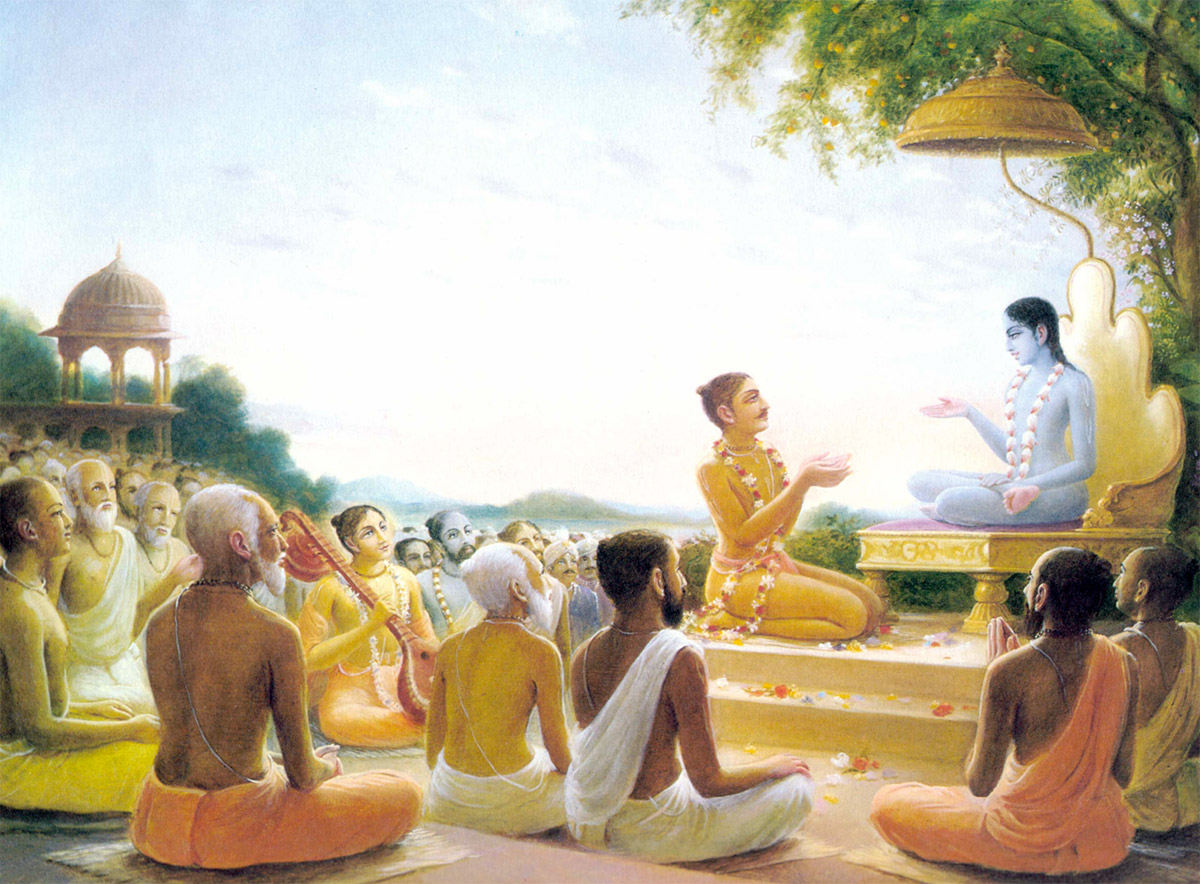
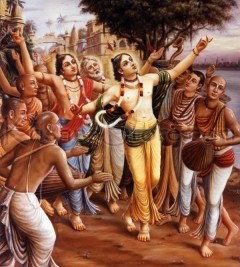
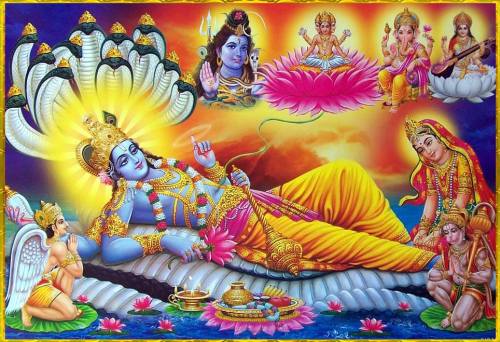
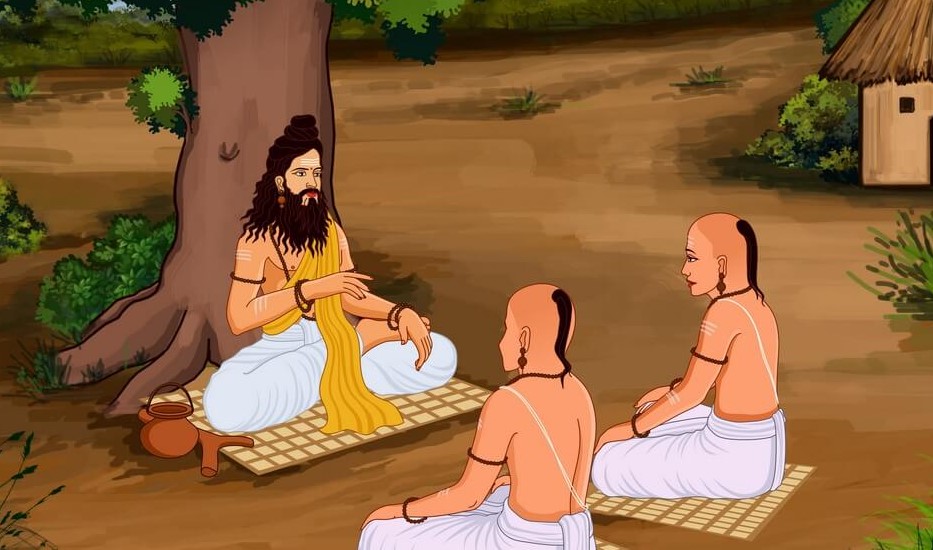
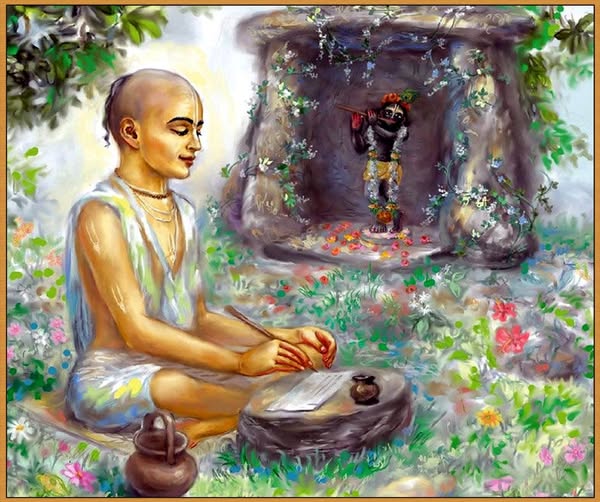
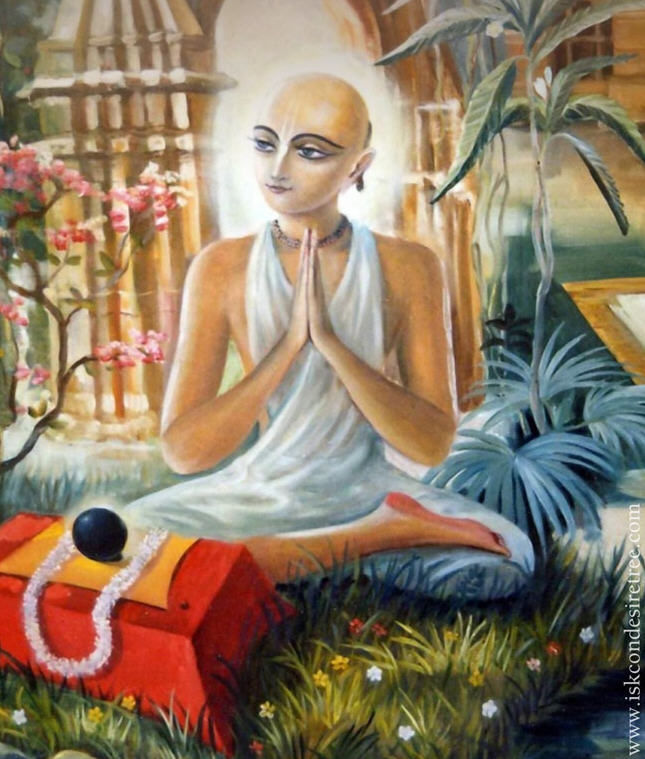
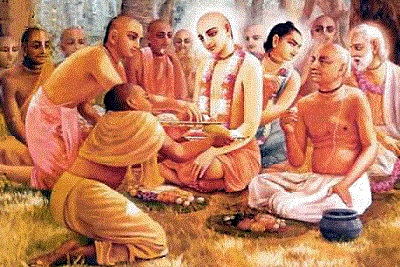
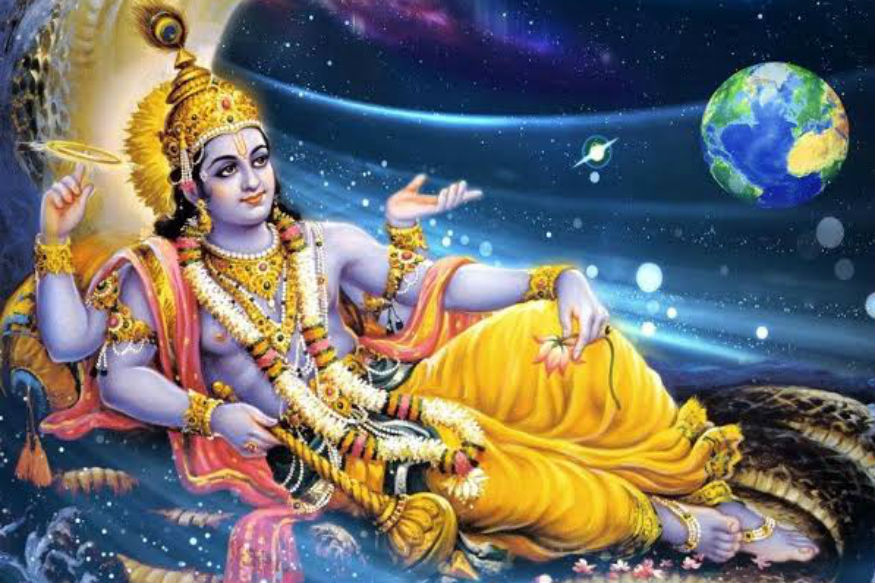
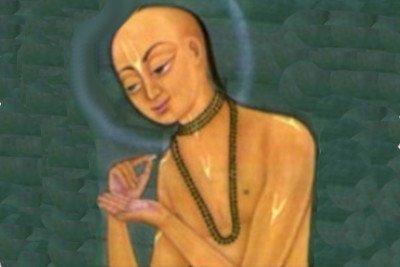
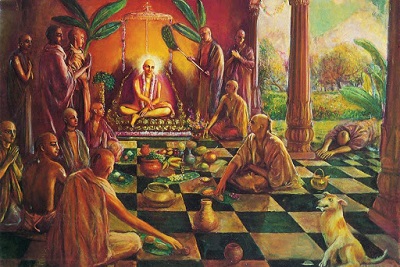
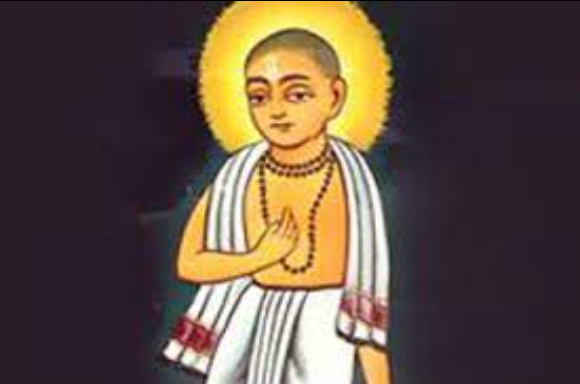
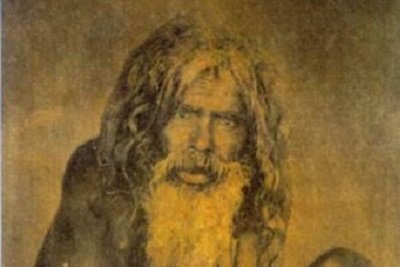
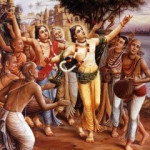
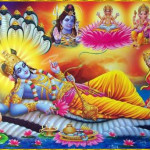
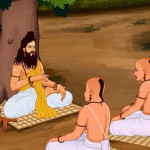
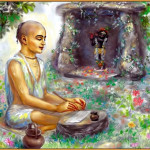
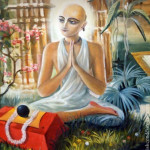
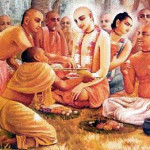
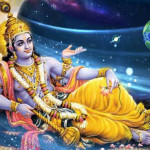
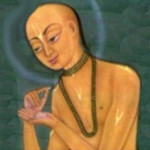
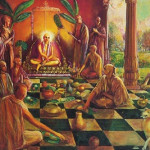
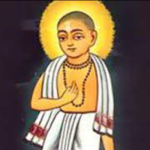
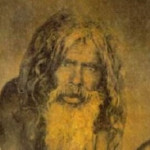








Do you mind if I quote a couple of your articles as long as I provide credit and sources back to your blog? My website is in the very same niche as yours and my visitors would truly benefit from some of the information you present here. Please let me know if this okay with you. Thanks!